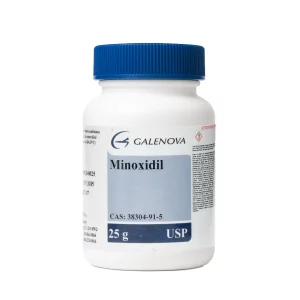Your cart is empty.
Your cart is empty.
A tyrosine kinase inhibitor is a type of medication that blocks specific enzymes called tyrosine kinases. These enzymes play a key role in how cells communicate and grow. By blocking them, these inhibitors can slow down or stop abnormal cell growth. This makes them especially useful in treating certain cancers. Some people also explore their potential role in slowing aging and promoting longevity.
One of the best-known examples is Dasatinib, which is often studied in combination with natural compounds like Dasatinib and Quercetin for their possible anti-aging effects. Understanding how these medicines work and knowing the right Dasatinib dosage are important for anyone interested in their health benefits. If you want to learn more or even buy Dasatinib safely, this article will guide you through what tyrosine kinase inhibitors are, how they work, and why they matter for health and longevity.
Tyrosine kinases are enzymes found in the body that help control how cells grow, divide, and communicate. Think of them as tiny messengers that send signals inside cells to tell them when to grow or repair damage. In healthy cells, these enzymes help the body heal and keep tissues working well. However, sometimes tyrosine kinases can become overactive or mutated. When this happens, they send too many growth signals. This can lead to cells growing uncontrollably, which is a hallmark of cancer. That’s why controlling these enzymes is a key target for certain treatments.
Tyrosine kinases are involved in many important pathways beyond just growth. They also influence how cells respond to their environment, move, and even survive under stress. This wide role makes them crucial in maintaining balance but also means that when they malfunction, diseases can arise.

Tyrosine kinase inhibitors, often called TKIs, are medicines designed to block the action of tyrosine kinases. They stop these enzymes from sending the signals that make cells grow too fast or in an uncontrolled way. By doing this, TKIs help prevent the spread of harmful cells in the body. These medications are usually taken as pills and are a form of “targeted therapy.” This means they focus on specific molecules, rather than affecting all cells like traditional chemotherapy does.
Because of this, they often cause fewer side effects and work more precisely. TKIs vary in their specificity. Some block only one type of tyrosine kinase, while others can block multiple kinases. This can affect how broadly they work and what conditions they are best suited for. Researchers continue to develop newer TKIs that aim to be more selective, reducing unwanted effects while increasing effectiveness.

Here’s a simple breakdown of how TKIs work inside your body:
This action is particularly helpful in diseases where certain tyrosine kinases are overactive, such as in some types of leukemia. Blocking these enzymes stops the malignant cells from multiplying and spreading.
Different TKIs target different enzymes depending on the disease. For example, Dasatinib targets several kinases including BCR-ABL, which is important in chronic myeloid leukemia. This versatility makes TKIs a powerful class of drugs in modern medicine.
Tyrosine kinase inhibitors have changed the way doctors treat many cancers. They are especially common in conditions like chronic myeloid leukemia (CML), lung cancer, and some breast cancers. Because they act on specific proteins involved in cancer growth, they are often used in precision medicine. This approach is more tailored than traditional chemotherapy. In addition to cancer, researchers are studying TKIs for other conditions like inflammation, fibrosis, and even aging.
Some studies have looked at their ability to reduce scarring in organs or to calm excessive immune responses. These broader applications highlight the potential of TKIs beyond oncology. Their use in chronic diseases is still in early stages but growing interest points to a future where TKIs may support a range of health challenges by targeting specific signaling pathways.
Some TKIs, including Dasatinib, are being studied for their potential to promote healthy aging. One way they might help is by clearing out senescent cells. These are old or damaged cells that no longer function well and can cause inflammation. Scientists have found that using TKIs alongside natural compounds like quercetin, a plant antioxidant, might better remove these cells. The combination of dasatinib and quercetin is gaining attention in longevity circles as a potential way to support cell health and reduce age-related damage.
The science behind this involves “senolytic” activity, where drugs help selectively remove these “zombie cells” that accumulate with age and contribute to tissue decline. While promising, this area is still experimental and requires more research before becoming a standard approach.
Here are some well-known TKIs and what they are commonly used for:
Each drug targets different enzymes and diseases but works on the same principle of blocking harmful cell signals.
TKIs are known as “targeted therapies” because they zero in on specific molecules inside cells. This contrasts with chemotherapy, which affects both healthy and cancerous cells.
Because of their precision, TKIs often cause fewer side effects and may be better tolerated. This precise action also makes them interesting for research beyond cancer, including chronic diseases and aging.The specificity also means that TKIs can be combined with other therapies, sometimes leading to more effective treatment regimens.
Researchers are exploring new areas where TKIs might help:
Improvements in drug design aim to make TKIs more selective, reducing unwanted effects on healthy cells. Advances include next-generation TKIs that better target mutated kinases or avoid crossing into healthy tissues unnecessarily.
In neurology, some TKIs show potential in diseases like Alzheimer’s by affecting signaling pathways linked to nerve cell damage. While much is experimental, this shows the expanding scope of TKIs. Ongoing research holds promise, but it will take time before new uses become widely accepted.
It’s a medicine that blocks enzymes which tell cells to grow or divide, especially when they’re growing too fast.
No, they are mostly used for cancer, but researchers are exploring their use in aging and other chronic conditions.
They attach to specific enzymes and stop the cell signals that promote unwanted growth or survival of damaged cells.
Some TKIs, like Dasatinib, are part of experimental longevity approaches, but more research is needed.
They are prescription medications with specific uses and must be taken under medical supervision.
Tyrosine kinase inhibitors represent an exciting advancement in medicine. Their ability to precisely block enzymes that cause abnormal cell growth makes them powerful tools against diseases like cancer. Beyond this, their potential to support healthy aging by clearing damaged cells opens new doors for longevity research. For those curious about anti-aging, understanding TKIs like Dasatinib and how they work alongside natural compounds such as quercetin is essential. If considering such treatments, always seek professional advice to ensure safety and effectiveness.
If you want to explore more about Dasatinib dosage or dasatinib and quercetin therapies, or are interested in where to buy Dasatinib safely, consult a chosen specialist and trusted sources to make informed choices on your health journey.
References
Cohen, P., & Alessi, D. R. (2013). Kinase drug discovery—what’s next in the field? ACS Chemical Biology, 8(1), 96–104.
https://pubmed.ncbi.nlm.nih.gov/23276252/
Druker, B. J., & Talpaz, M. (2001). Efficacy and safety of a specific inhibitor of the BCR-ABL tyrosine kinase in chronic myeloid leukemia. The New England Journal of Medicine, 344(14), 1031–1037.
https://www.nejm.org/doi/full/10.1056/NEJM200104053441401


Acarbose blocks carbohydrate breakdown in the small intestine, preventing rapid glucose absorption spikes.

Dasatinib eliminates senescent cells through selective apoptosis, clearing age-damaged tissues from the body.

Metformin inhibits hepatic glucose production while enhancing insulin sensitivity, offering cost-effective Type 2 diabetes management.

Minoxidil dilates scalp blood vessels, increasing nutrient delivery to hair follicles while extending the anagen growth phase duration.
Unlock savings on bundles and elevate your online experience today!